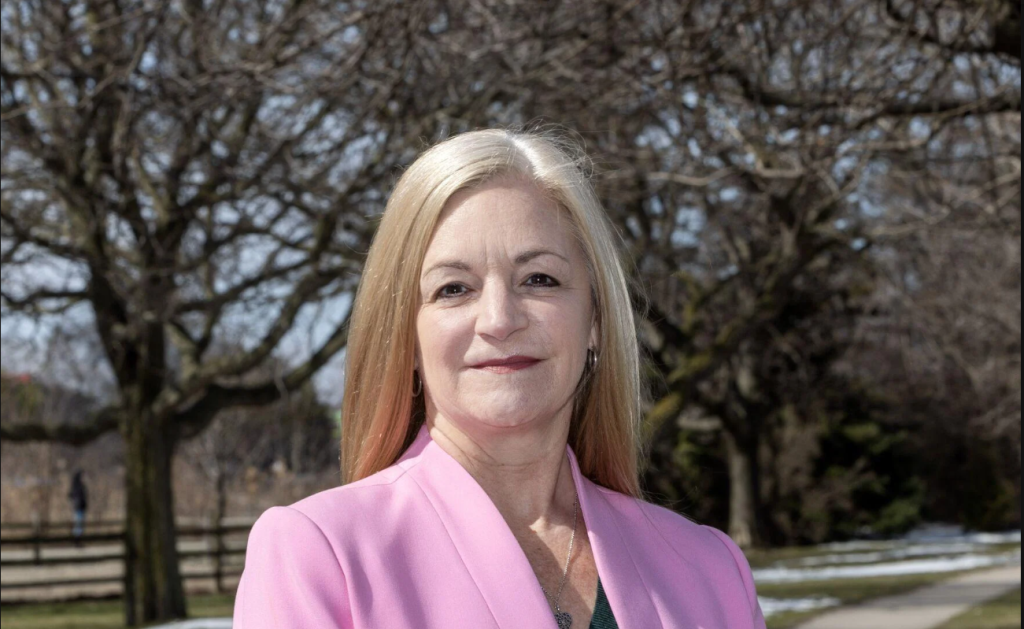1. Who are you? Tell us about yourself.
My name is Tasnim Reza, and I am a second-year Ph.D. candidate in Biochemistry at Western University working under Dr. Michael Boffa’s supervision. I previously received my Bachelor of Science at the University of Ontario Institute of Technology in Honours Biology (Life Science), followed by a Master’s in Medical Biotechnology at the University of Windsor.
2. Why is the TBCRU Studentship Award important to you?
The TBCRU award has allowed me to dedicate my time to the most valuable part of the graduate journey, research. Receiving this award has allowed me to continue working in this critical field. I am incredibly honoured to receive this award. I share this space with the other trainees, whose exceptional work inspires and motivates me to work harder towards our common goal. The studentship alleviated my financial burdens, exposed me to the vast array of research conducted in the breast cancer community, and provided me with a platform to present my research.
3. Tell us about your research. What are you doing, and what problems do you hope to solve?
My research aims to evaluate the inhibitory role of two proteins called thrombin activatable fibrinolysis inhibitor (TAFI) and thrombomodulin (TM), on the ability of breast cancer cells to invade and spread (metastasize) through the body. The metastasis of cancer cells in part depends on a group of proteins called proteases that helps cancer cells chew through the structural matrix that separates our tissues. TAFI, along with TM, prevents the activation of such proteases; therefore, they may have the ability to reduce or stop metastasis. I am assessing the anti-metastatic role of TAFI and TM in breast cancer using experimental approaches in the lab and mouse models of breast cancer.
4. Why is your research important? How can your research be applied in the real world?
Metastasis is the leading cause of breast cancer-related deaths, and it is also the most challenging step to treat. My research provides a new opportunity to develop anti-metastatic therapies by targeting proteins that control the movement of cancer cells. We hope that we can create a novel therapy through our studies that will prevent breast cancer from spreading and help patients in the future.
5. What inspired your research?
Currently, there are no drugs present in the market that specifically target the process of metastasis. Previously in our lab, we have determined that TAFI reduces invasion and migration of breast cancer cells. The positive results inspired us to move forward and bring this research into mouse models and explore a new pathway to treat metastasis.
6. Why are you passionate about breast cancer research?
I was always intrigued by the scientific community as it strives to bring new treatments and increase patients’ quality of life who suffer from various diseases. To be a part of this community has always been a dream of mine. Breast cancer is one of the most complex and far-reaching diseases. The challenge posed to the researchers by this disease has always made me curious. It is almost like being in an infinite labyrinth and looking for a clue to get out of it. Unfortunately, like many people around the world, I have lost family members to cancer. The suffering that we went through due to this disease has always pushed me to look for answers. I had the opportunity to meet breast cancer patients when working at the Ontario Institute of Cancer Research. Their stories inspired me to work in this field and try to make a difference.
7. Why do you think breast cancer research matters?
Breast cancer is the most common cancer in women worldwide. It not only affects women; there are cases where men get affected by this too. Therefore, it is essential to address the disease and work together to develop treatments that will ease pain and suffering. I am thankful to organizations like the Breast Cancer Society of Canada for supporting researchers like me, who are working towards a safer world where breast cancer is irrelevant.
8. What excites you about your work?
The collaborative nature of my work excites me the most. As basic scientists, we do not often get the opportunity to interact with people who will eventually receive the treatment we are trying to develop. I am very excited to work with clinicians and develop therapies that will allow me to observe our protein-based drug’s effect on breast cancer patients’ metastases.
9. What do you see yourself doing in the future?
In future, I would like to combine my experiences I gained in my Master’s with the expertise of my Ph.D. to move with the evolving world. I am always excited to learn from my surroundings, and I will apply it to enhance my biotechnology research.
10. What do you like to do when you aren’t working on research?
I like to cook and try out different recipes from all around the world. I also want to visit other places and learn about ancient civilizations (when the world is not suffering due to COVID-19). I also like to play outdoor and indoor games with my friends and family. I also love to volunteer with charities like Nourish Bangladesh, which helps feed poor people.
SUPPORT RESEARCHERS LIKE TASNIM REZA BY CONSIDERING A DONATION TO THE BREAST CANCER SOCIETY OF CANADA. FIND OUT HOW YOU CAN HELP FUND LIFE-SAVING RESEARCH, VISIT BCSC.CA/DONATE TODAY.




